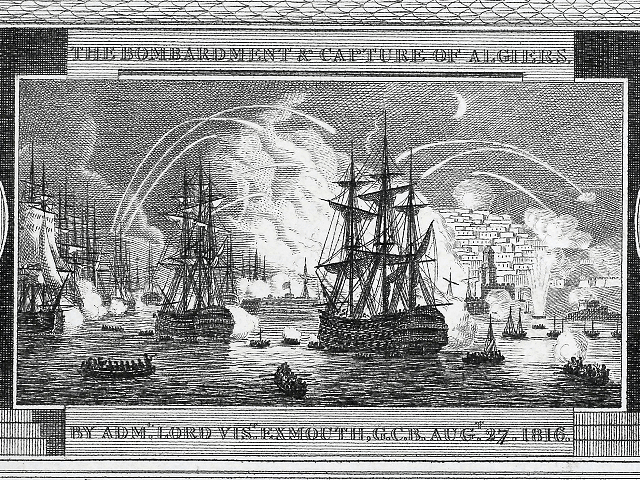Top Gear star Jeremy Clarkson has said “muddle-headed lefties” should stop dragging Britain’s name through the mud and highlight its dangerous and expensive crusade to stamp out global slavery.
The broadcaster took aim at the BLM-inspired fad among publicly-funded bodies such as Historic England for pouring resources into attempting to connect swathes of Britain’s heritage with supposed misdeed, and so on — for example by creating a list of village halls, churches, pubs and so on which were supposedly touched by the “slavery economy”.
“Right. Good. This was excellent research, and I’m sure the people who live in these places are now burning their houses and pubs and schools down and moving, with their heads bowed in shame, to an area that was never involved in slavery. Spain, perhaps, or Portugal,” Clarkson remarked — perhaps not entirely sincerely — in an article for the Sunday Times.
“In the meantime, I’ve been doing some research of my own about the Royal Navy’s West Africa Squadron,” he went on, referring to the once-famed armada which spearheaded Britain’s efforts to stamp out the Atlantic slave trade globally.
“Britannia claimed that it ruled the waves, and Britannia was going to damn well prove the point,” he said, highlighting in particular the story of the HMS Black Joke, a former Brazilian slave trader repurposed by the British for its swiftness.
“In one engagement it spent 31 hours chasing a Spanish brig called El Almirante that was en route to Havana. When the British finally caught up, they realised that their two tiny guns were no match for the 14 monsters that the Spaniards could muster. But after little more than an hour, 15 of the El Almirante’s crew, including the captain, were dead, and the remainder had surrendered,” he wrote, lamenting the fact that schoolchildren never hear tell of the Black Joke’s daring captain, Henry Downes — “I suppose his story doesn’t tally with current thinking.”
“I guess that muddle-headed lefties really don’t like the idea that for nearly a hundred years, and at vast expense, the country that they hate waged easily the most morally just war of all time,” Clarkson concluded acidly.
Between 1808 and 1860 over 150,000 people were liberated from the slave trade by the West Africa Squadron. #BlackAndBritish pic.twitter.com/FyRTtk5yit
— BBC Two (@BBCTwo) November 23, 2016
While the activities of the West Africa Squadron, which “swallow[ed] up 13 per cent of the navy’s manpower [and] cost far more than Britain earned from its earlier slaving enterprises”, according to Clarkson, is the probably Britain’s best-remembered initiative against the slave trade — which is perhaps not saying much in an era obsessed with emphasising only the (real or imagined) crimes of the former empire — it was not alone.
Clarkson touched upon the Royal Navy’s efforts against the Arab Muslim-run slave trade in East Africa — almost entirely neglected by activist academics and schools alike, although it endured for far longer than the Atlantic slave trade and is believed to have been much deadlier to enslaved than even the infamous Middle Passage. British abolitionists such as Dr David Livingstone and Dr John Kirk were also vital in closing down the East African trade.
Britain played a key role in stamping out an even more inconvenient slave hub — that of the Muslim rulers of North Africa, who for centuries carried European Christians off from ships and coastal settlements, largely in the Mediterranean but also from Great Britain, Ireland, and even faraway Iceland, to live out lives of brutal toil or sexual slavery on the Barbary Coast.
It took a fleet of British ships, aided by the Dutch and led by Lord Exmouth, a hero of the French Revolutionary and Napoleonic Wars, to put an end to this trade — for the most part — and free North Africa’s white slaves, after a deadly battle with Dey of Algiers.
Britain was also instrumental in ending the widely ignored practice of slavery among Africans themselves, with Boy Scouts founder Robert Baden-Powell, for example, having participated in an expedition against the Ashanti kingdom in the 1890s to “put a stop to slave trading and raiding”.
The Ashanti ruler, Prempeh, preyed upon his neighbours not, for the most part, for want of labour, but for captives who could be used in human sacrifices.
The expedition was not without its dangers for the British, and claimed the life of Queen Victoria’s own son-in-law, Prince Henry.
BBC – History – British History in depth: British Slaves on the Barbary Coast https://t.co/ATBiclTz6t
— Mike Cernovich (@Cernovich) August 18, 2019

COMMENTS
Please let us know if you're having issues with commenting.